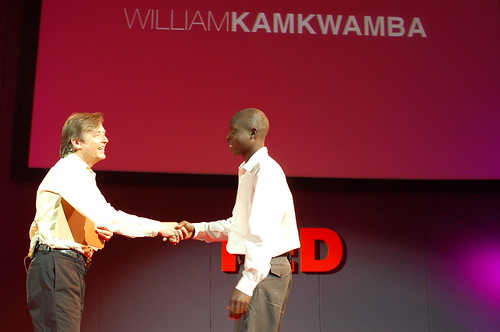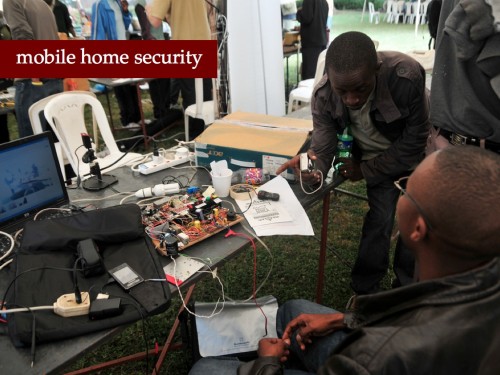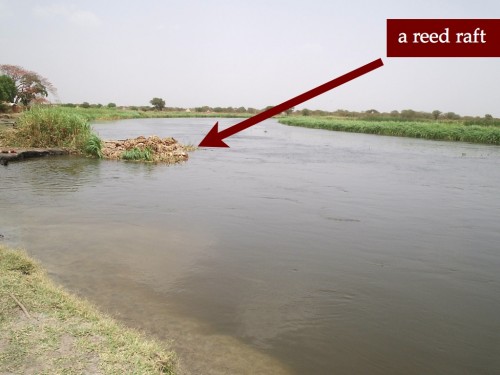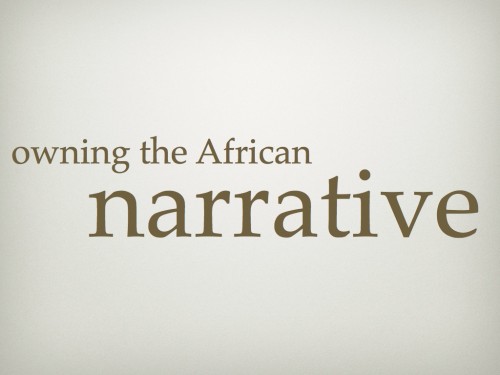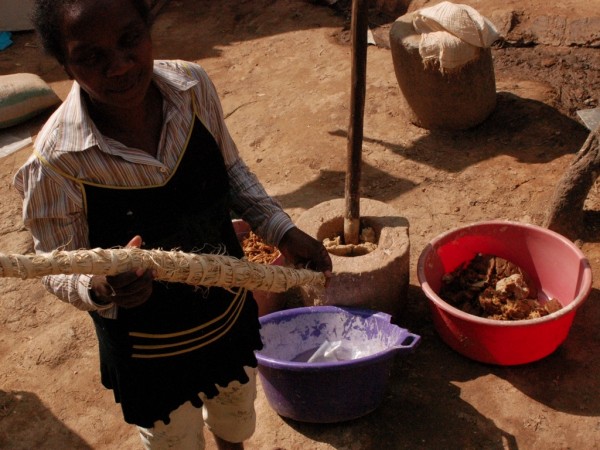[These are my notes from my talk at TEDxAntananarivo in Madagascar today]
There are 2 things I’m going to leave you with today. One is a changing story of Africa, where the West is beginning to see Africa in a different light due to technological innovation. The second is a challenge to you here in Madagascar on how you recognize and promote the successes from your own country.
I’m going to start with a TED story, since this is a TEDx event. In 2007 I, along with Harinjaka who invited me here today, was an inaugural African TED Fellow in Tanzania. That was a life changing event for many of us – it brought together 100 young influencers from across Africa, formed the relational base that allowed Ushahidi to be created, put Harinjaka and myself on the main TED stage for short talks, and it thrust into the limelight a young Malawian who few yet had heard about anywhere in the world.
Another Malawian TED Fellow, Soyapi Mumba, introduced me to someone I had written about but never met: William Kamkwamba. It was a great surprise and an honor to meet William in person, as we had written about him on our blog AfriGadget the year before. As a young schoolboy, he was forced to drop out of school during their big drought, he had checked out a book and hand-fabricated a windmill from old plastic, sheet metal and bicycle parts to help power his home. An amazing story that is now a book, and soon to be a film.
At that time, in 2006, it was a true outlier story. The kind you just didn’t here about that often.
I’m going to propose to you a new story, where we’re not amazed and surprised to hear of ingenuity and innovation springing from African soil. Instead we’re seeking it out and celebrating what we already know is there. Let the people in the West be surprised, but not us, because we know and value our inventors and entrepreneurs already.
I guess, if you were to boil down the last 5 years of my life, you could claim that it has been focused on finding Africa’s innovators, telling their stories, and joining them in my own high tech way.
- I founded AfriGadget, a group blog, telling the stories of Africans solving their everyday problems with their own ingenuity.
- My personal blog WhiteAfrican is where I highlight the high tech side of the mobile and web movement across Africa
- This year we set up the iHub, Nairobi’s tech innovation hub, forming a nexus point in the city for Kenya’ thriving tech community.
- I’m one of the co-founders of Ushahidi, the open source software for crowd sourcing information that started in Kenya and is now used globally.
- Last year I co-organized Maker Faire Africa in Ghana, and this year in Kenya, which showcases 100+ inventors, innovators and ingenious solutions from that region.
That sounds like a lot, but if anything, this constant brushing together with Africa’s innovators has taught me that we’re just now scratching the surface of what’s out there. Innovative business practices mixed with a different technology paradigm are shaping a new form of business, products and services across the continent.
Let’s take a speed run through a couple so that you can get a glimpse into this world:
(Note: I won’t put all the images here, as you can find them on AfriGadget and Maker Faire Africa Flickr pools)
- Bio gas systems
- Evapocooler for cooling camel milk
- Multi-use solar charging systems like Tough Stuff or handmade.
- Mobile home security system
- Seed planting devices
- Seemingly crazy items like helicopters and airplanes
- Bicycle powered maize shellers
- Hosts of mobile and web apps, for everything from mobile payments to checking for counterfeit drugs
- Rainwater runoff reclamation for fish ponds and plant nurseries
It goes on, and on, and it isn’t new.
I was 2 years old when I moved to Sudan, back in 1977. In that time in the South, we had to hunt for our meat. There was this tall elephant grass that grows near the Nile that made it hard to see. I remember going hunting for meat with my dad and his colleagues and having the hunters sit on top of our old Landcruiser in order to see over the tops of this growth. Here’s something that most people don’t know, for hundreds of years the Southern Sudanese have created rafts out this same grass and reeds to move themselves, their animals and goods down the Nile for trade.
It’s an ingenious use of a naturally regrowing part of their environment, from which both people and nature benefit.
My take is this:
innovative individuals are found in the same percentage here in Madagascar as they are in the rest of Africa and the world. That there is an even distribution of innovation globally.
Innovation and other’s success
Now, I know there has been trouble in this country over the last couple years. We in Kenya have our own too, as do other nations across the continent.
This is my challenge to you, despite the turmoil, figure out how you will tell the positive stories of Malagasy innovation. Don’t let the world direct the narrative of poverty, corruption and coups, instead own the narrative, be proactive in showcasing your successes, even when it’s not you that directly benefits. For, until we own this narrative about our continent, we will forever be slaves to those that do.
The organization that I co-founded with 3 other Kenyans, Ushahidi, has had quite a lot of success globally. I remember in the second year one of the other founders saying to me that they were surprised with our success, that they hadn’t believed we could get this far. I was surprised too, since I had never thought there was a limit to how far we could go.
This is about what I’m starting to refer to as the African success complex, where we don’t always believe that we can stand on the global stage toe-to-toe with our global peers. Many times this can take the form of tearing down the people in your own community because their success is somehow seen as your loss. It’s exactly the opposite. The more successes that we have, the more likely we all are to benefit. It’s much like a shopping center, where one store alone is hardly a draw for customers, but many together bring them in hordes.
The stories we tell about ourselves are what define us. They are mirrored back and become reality. When you say, “I’m going to be the best _________ in Madagascar”, you’re limiting yourself. In what we do at Ushahidi, we don’t compare ourselves to anyone in Africa, nor even globally. We choose to compare ourselves against what we expect of ourselves, not what others expect of us, and this gives us the freedom to grow and succeed beyond even our expectations.
I’ve only had one day in Madagascar, and I hope to return again to this beautiful country soon. In that time however, I walked the streets and found a story of home grown Malagasy innovation to share with the world on AfriGadget.
Yesterday I met a lady who takes the bark from a certain type of tree, pulps it and makes paper. I’m sure many of you have seen her family’s work on the way to the airport. This paper is then sold as a specialty gift paper to tourists and others. It’s an example of Malagasy entrepreneurship that has gone far, where the whole family is supported by this business.
There are already a great number of exceptional bloggers and journalists from this country, like Foko, and I look forward to seeing the next stories from you, pushed into the global sphere about the businesses, entrepreneurs, inventors and social success stories.
